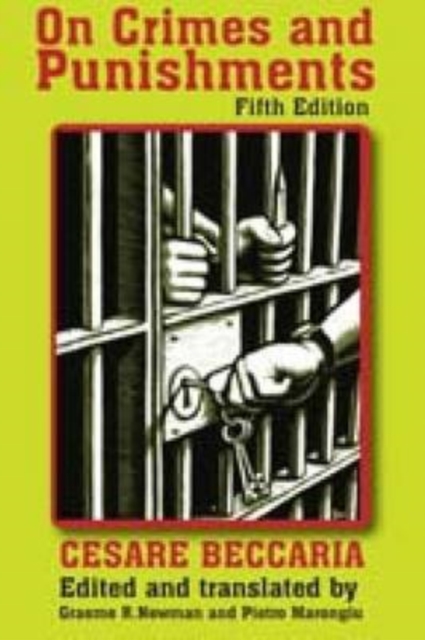
On Crimes and Punishments Hardback
by Georg Koopmann
Hardback
Description
Beccarria's influential Treatise On Crimes and Punishments is considered a foundation work in the modern field of criminology.
As Newman and Marongiu note in their introduction to the work, three master themes of the Enlightenment run through the Treatise: the idea of the social contract, the idea of science, and the belief in progress.
The idea of the social contact forms the moral and political basis of the work's reformist zeal.
Th e idea of science supports a dispassionate and reasoned appeal for reforms.
The belief in progress is inextricably bound to the idea of science.
All three provide the necessary foundation for accepting Beccaria's proposals. It is virtually impossible to ascertain which of several versions of the Treatise that appeared during his lifetime best reflected Becccaria's own thought.
His use of many ideas of Enlightenment thinkers also makes it diffi cult to interpret what he has written.
While Enlightenment thinkers wanted to break the chains of religion and advocated free men and free minds, there was considerable disagreement as to how this might be achieved, except in the most general terms. The editors have based this translation on the Francioni (1984) text, by far the most exhaustive critical Italian edition of Dei delitti e delle pene.
This edition is undoubtedly the last that Beccaria personally oversaw and revised.
This new translation, which includes an outstanding opening essay by the editors, is a welcome introduction to Beccaria and to the modern beginnings of criminology.
Information
-
Available to Order - This title is available to order, with delivery expected within 2 weeks
- Format:Hardback
- Pages:222 pages
- Publisher:Taylor & Francis Inc
- Publication Date:15/07/2009
- Category:
- ISBN:9781412810159
Other Formats
- EPUB from £40.49
- PDF from £40.49
- Paperback / softback from £44.05
Information
-
Available to Order - This title is available to order, with delivery expected within 2 weeks
- Format:Hardback
- Pages:222 pages
- Publisher:Taylor & Francis Inc
- Publication Date:15/07/2009
- Category:
- ISBN:9781412810159






